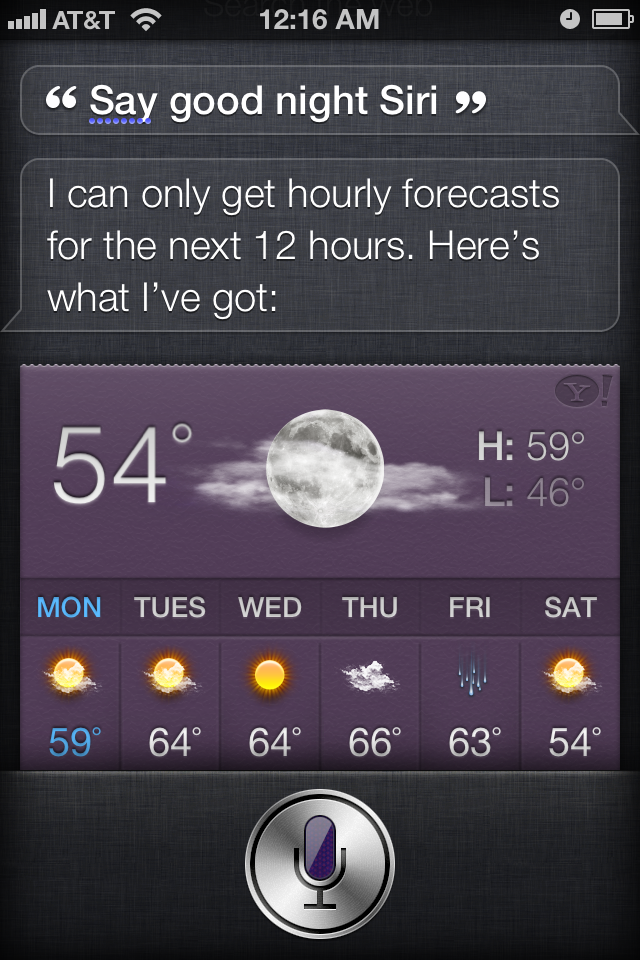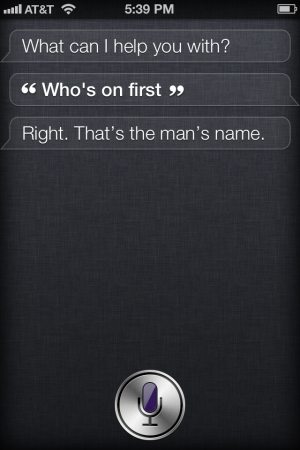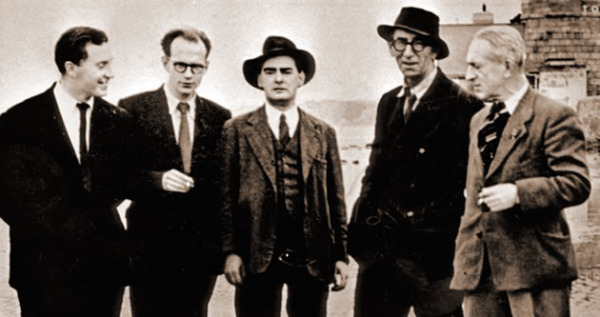I got a new iPhone 4S last week, and after having had my last iPhone (the 3G) since January 2009, I was blown away by how much faster the new phone is. Not to mention the value of voice activation - to be able to ask my phone “where am I?” and get an answer almost immediately feels nearly magical.
After seeing all of the various Siri Easter eggs people have been posting, I figured I’d come up with one that would be a softball. But Siri whiffed it:
Well, I thought, maybe it’s my upbringing, with my Greatest Generation grandparents, that makes me think you’d want to teach Siri that the correct answer to “say goodnight, Siri” is “Goodnight, Siri.” And so I went about my day.
The next day, however, I tried again, and I succeeded:
Once I got past my delight that it worked, and the associated delight in hearing the line delivered in Siri’s flat mechanical voice, I started thinking about why the Abbott & Costello routine would have made it into the programmers’ basket of Easter eggs, and Burns & Allen’s closing “say goodnight, Gracie” bit would not have.
AIs, even a fake-AI like Siri, needs a certain amount of cultural savvy to interact with its users, and to project for us what we insist on calling a personality even when it’s not attached to a person. A smart journalist I know thinks that “software personality designer” will be a separate career path within the next decade; I tried convincing him that that was what interaction designers already do, bring personality to their products, but the more time I spend with Siri, the more I start to think that such specialization may actually be necessary, because there is so much to consider and know.
In Richard Powers’s novel Galatea 2.2, there comes a point when they have to teach the AI at the center of the book about all the things its human trainers know that aren’t captured in the literary works they’ve been teaching the AI to read. The catalogue of items goes on for dizzying pages, because, as Powers’s narrator remarks, “worldiness was massive.” It will be interesting to see how and in which ways Siri becomes more worldly, and how that changes the experience of using it.
Until then, though, if anyone from the Siri team reads this: next iteration, the appropriate response to “say goodnight, Siri,” is “Goodnight, Siri.” Thank you, and remember to tip your waitress.




